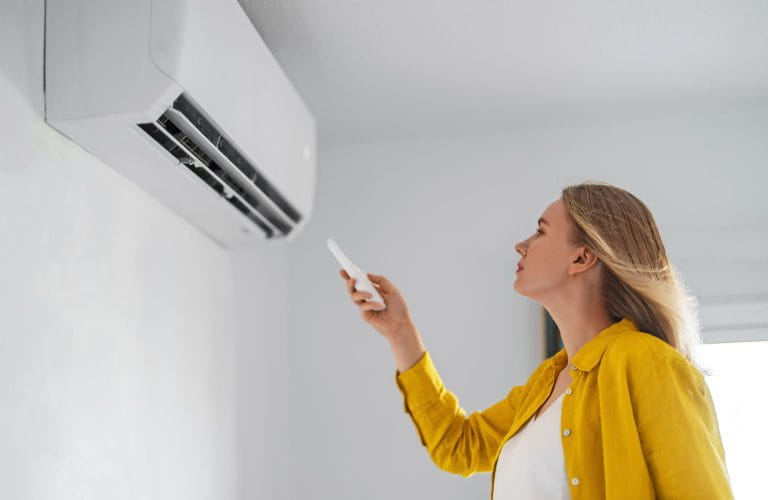
When the summer heat hits, there's nothing quite like the relief of stepping into a cool, air-conditioned space. But what exactly is air conditioning, and how does it work? It's more than just blowing cold air; it's a complex process that manages temperature, humidity, and air quality to create a comfortable environment.
The Science Behind Cooling
At its core, air conditioning relies on the principles of thermodynamics, specifically the process of heat transfer. Here's a simplified breakdown:
- Refrigerant Cycle: A special substance called a refrigerant circulates through the system. This refrigerant has the ability to absorb and release heat as it changes states from liquid to gas and back again.
- Evaporation: Inside the evaporator coil, the liquid refrigerant absorbs heat from the indoor air and turns into a gas. This process cools the air.
- Compression: The gaseous refrigerant is then compressed, which increases its temperature.
- Condensation: The hot, compressed gas travels to the condenser coil, where it releases heat to the outside air and turns back into a liquid.
- Expansion: The liquid refrigerant then passes through an expansion valve, which reduces its pressure and temperature, preparing it to absorb heat again in the evaporator.
This continuous cycle ensures that heat is constantly being removed from the indoor air, leaving you with a cool and refreshing atmosphere. Modern air conditioning systems also incorporate filters to remove dust, pollen, and other particles, improving indoor air quality.
Types of Air Conditioning Systems

There are various types of air conditioning systems, each designed for different needs and spaces:
- Central Air Conditioning: These systems use a network of ducts to distribute cool air throughout an entire building. They are ideal for homes and large offices.
- Window Air Conditioners: These units are installed in windows and are designed to cool a single room. They are a cost-effective option for smaller spaces.
- Ductless Mini-Splits: These systems consist of an outdoor compressor and one or more indoor units, connected by refrigerant lines. They are versatile and energy-efficient, perfect for rooms without ductwork.
- Portable Air Conditioners: These units can be moved from room to room and are ideal for temporary cooling needs.
Benefits of Proper Air Conditioning
%20(1).jpg)
Investing in a good air conditioning system offers numerous benefits:
- Comfort: Maintaining a comfortable indoor temperature is essential for well-being, especially during hot weather.
- Improved Air Quality: Modern systems filter out allergens and pollutants, creating a healthier indoor environment.
- Better Sleep: A cool room promotes better sleep, leading to improved overall health.
- Protection of Electronics: Excessive heat can damage electronic devices, and air conditioning helps to prevent this.
- Increased Productivity: A comfortable environment can boost productivity and focus.
Maintaining Your Air Conditioner

To ensure your air conditioning system runs efficiently and lasts longer, regular maintenance is crucial:
- Regular Filter Changes: Dirty filters restrict airflow and reduce efficiency.
- Professional Tune-Ups: Annual inspections by a qualified technician can identify and address potential issues.
- Cleaning Coils: Dirty coils can reduce the system's ability to transfer heat.
- Checking Refrigerant Levels: Low refrigerant levels can impact cooling performance.
By understanding how air conditioning works and taking proper care of your system, you can enjoy a cool and comfortable environment all year round.
No comments:
Post a Comment
Note: Only a member of this blog may post a comment.